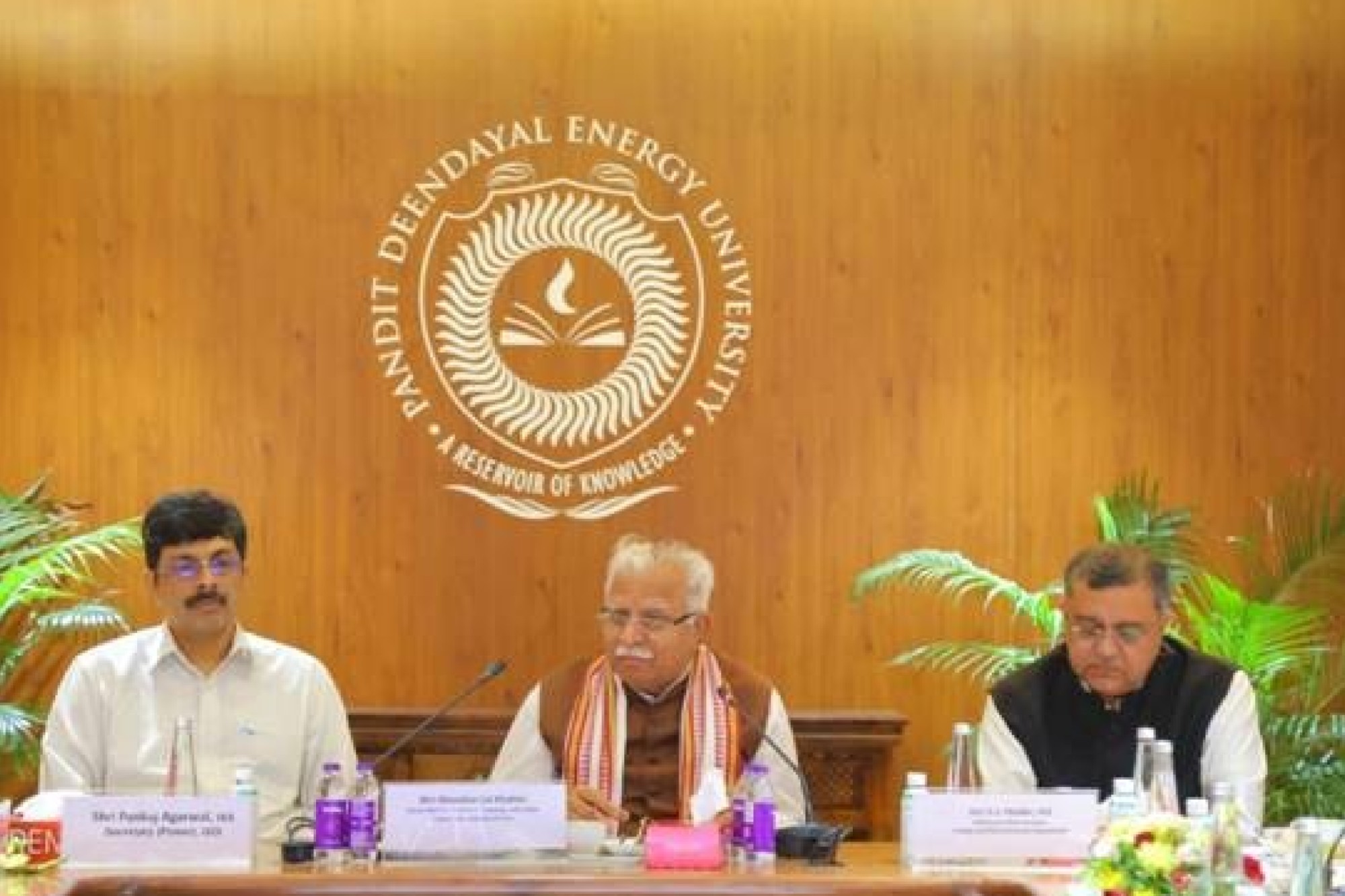Govt discuss roadmap to achieve 100GW nuclear energy by 2047
By Staff Report April 29, 2025 5:40 pm IST
By Staff Report April 29, 2025 5:40 pm IST

Power Minister Manohar Lal Khattar headed the discussion on the roadmap to generate 100GW nuclear energy in the Consultative Committee of the Ministry of Power.
The Parliamentary Consultative Committee on Power discussed the roadmap to achieve the 100GW nuclear energy target by 2070. During the meeting chaired by Power Minister Manohar Lal Khattar, members stressed on the need to increase the share of non-fossil fuel-based power generation in the country. As the power sector contributes over 40 percent of global energy-related emissions, nuclear energy, being a non-fossil and stable power source, will play an increasingly important role in India’s sustainable development journey. The Minister elaborated that apart from electricity generation, nuclear energy can also serve non-electric applications such as hydrogen production, desalination, process steam and space heating thus supporting India’s broader energy transition goals.
Members were informed that India currently operates 25 nuclear reactors across seven locations, with a total installed capacity of 8,880 MW, contributing about 3 percent of the country’s electricity generation. Eight reactors with 6,600 MW capacity are under construction, and another ten reactors with 7,000 MW capacity are in pre-project stages. In line with India’s vision of ‘Viksit Bharat 2047’, the Government has set a target of achieving 100 GW of nuclear power capacity by 2047. This will significantly strengthen India’s long-term energy security and contribute towards achieving clean energy goals.
The Minister outlined the key challenges and strategic steps required for scaling up nuclear energy, including: To accelerate the growth of nuclear energy in India, a multi-pronged strategy is being considered to enhance both institutional and infrastructural capabilities. This includes amending key legislations such as the Atomic Energy Act, 1962 and the Civil Liability for Nuclear Damage Act, 2010 to enable broader participation from private entities and state sector players. Public perception of nuclear energy remains a critical factor; therefore, efforts to build awareness around its safety and environmental benefits are essential. To expedite project execution, the strategy emphasizes faster land acquisition by leveraging brownfield expansions and repurposing retired thermal power sites.Further, streamlining the regulatory approval process is expected to significantly reduce project timelines, while the introduction of tax concessions, green power classification, and long-term financing options will ensure that nuclear energy remains cost-competitive. Technology diversification is another priority, with competitive bidding mechanisms and the promotion of indigenous manufacturing under the Make in India initiative fostering a more self-reliant and flexible nuclear infrastructure. Ensuring a stable supply chain through diversified uranium sourcing and an expanded vendor base for specialized nuclear equipment is also on the agenda. Lastly, building a skilled workforce is crucial to sustain the sector’s growth, which calls for a robust boost to nuclear education and training infrastructure across the country.
Members of Parliament actively participated in the discussions and provided valuable suggestions for expediting nuclear power deployment. They stressed the need for faster project execution, creating a favorable public narrative, ensuring technology diversification, and building robust vendor and manpower ecosystems. In his concluding remarks, the Minister assured the Members that the Ministry of Power would work closely with the Department of Atomic Energy, State Governments, industries, and other stakeholders to accelerate the deployment of nuclear power projects and ensure a clean, secure, and sustainable energy future for India.
We use cookies to personalize your experience. By continuing to visit this website you agree to our Terms & Conditions, Privacy Policy and Cookie Policy.